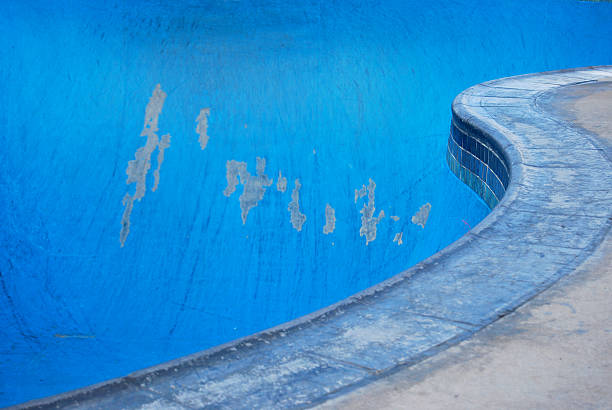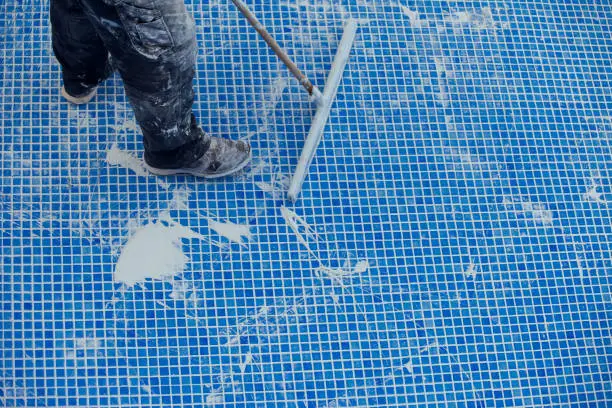Pool resurfacing is our specialty at Poolburg, FortWorth, Texas.
So what exactly is pool resurfacing and what is the pool replastering process like? Well, if your current pool is an in ground concrete pool that is coated with plaster, pebble, fiberglass or even all tile, the new surface cannot just go over the existing surface. The existing surface needs to be prepared for a new coat of plaster or pebble by first either chipping out the existing plaster, sand blasting and bond coating the surface or hydro blasting the existing surface. Per the National Plasterers Council, these are all acceptable methods, but each comes with certain advantages or disadvantages. After the surface has been properly prepared, you are now ready to apply the finish coat of either plaster, quartz, exposed pebble, glass beads, or polished pool finish.


